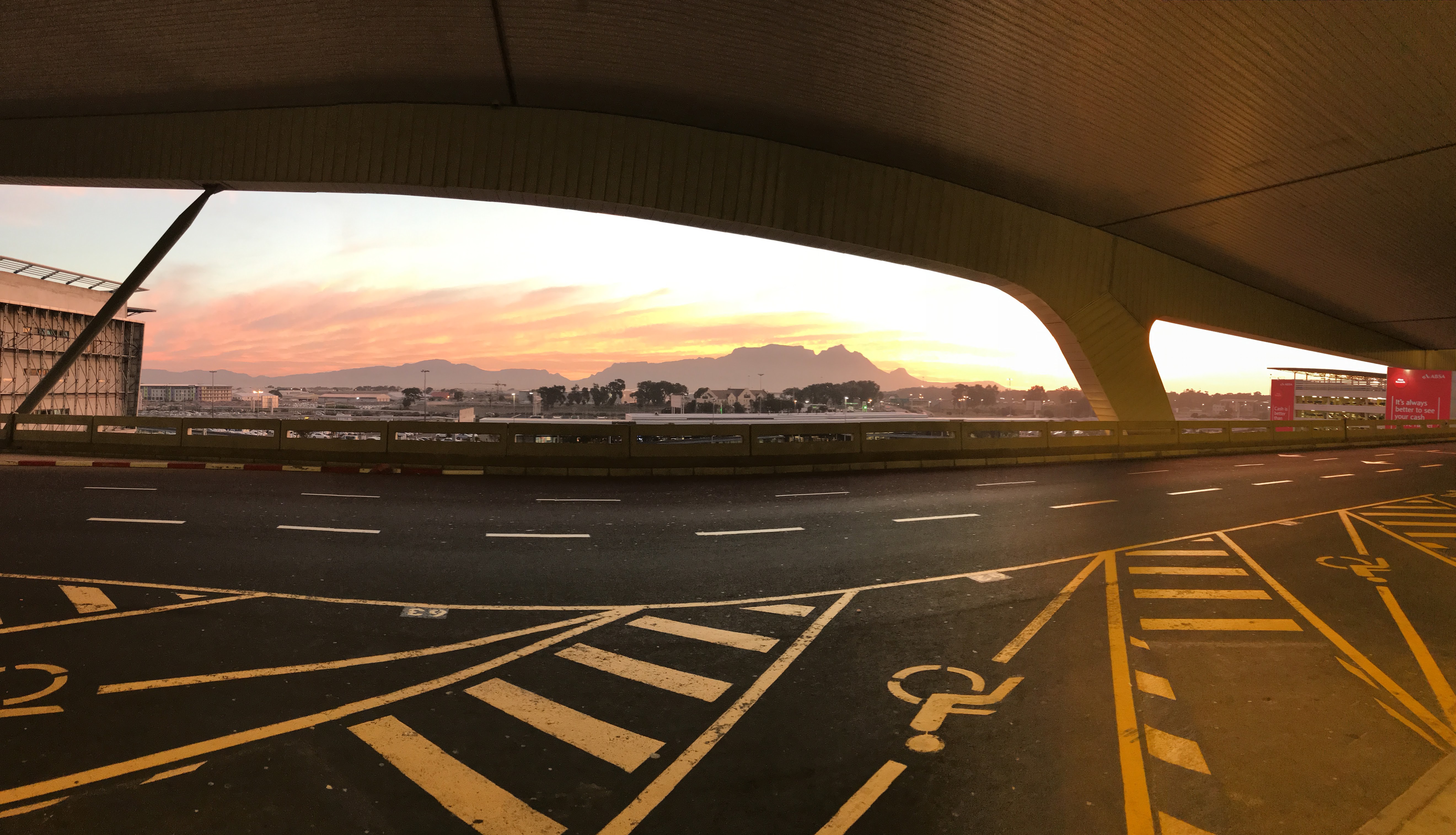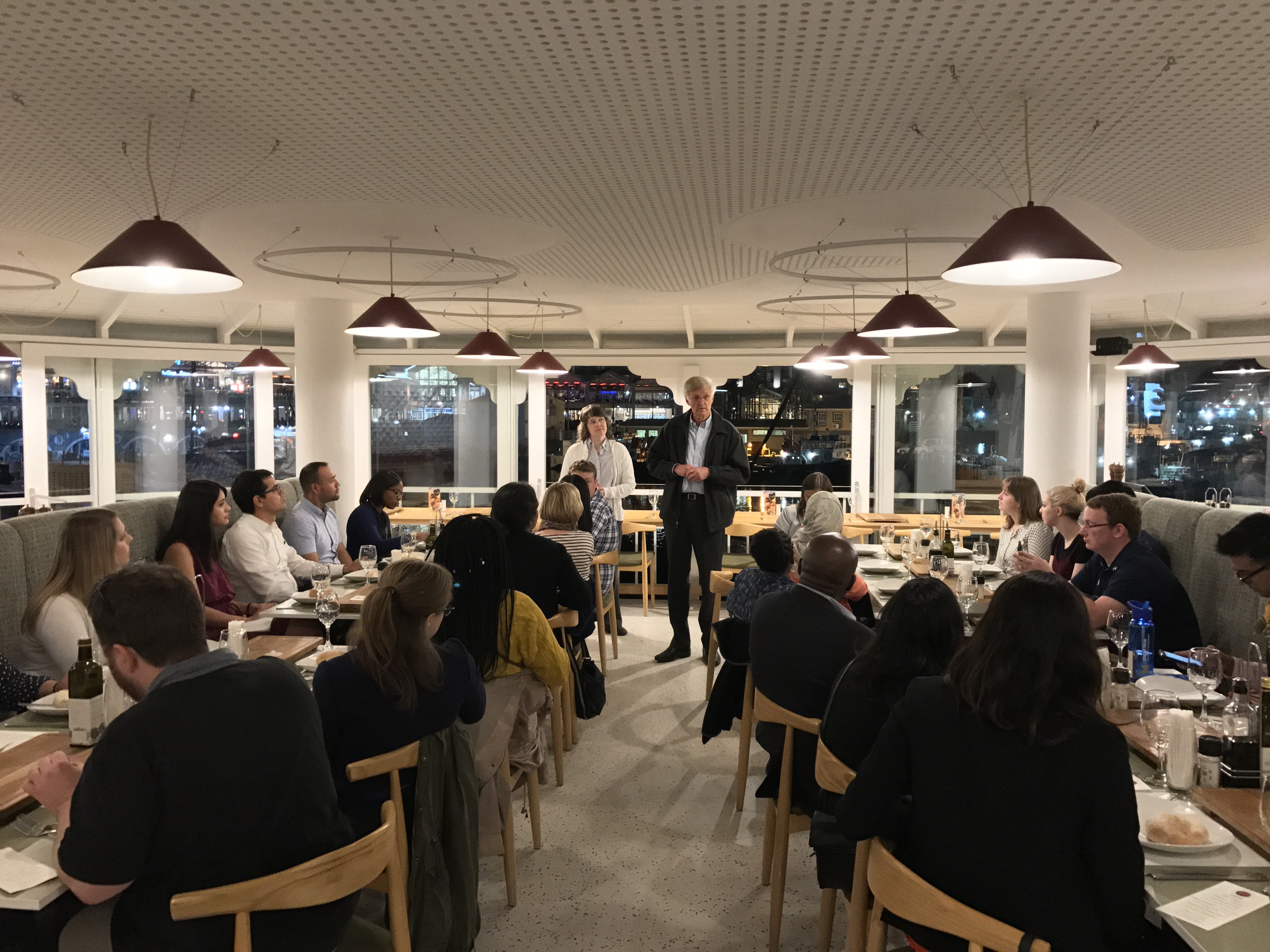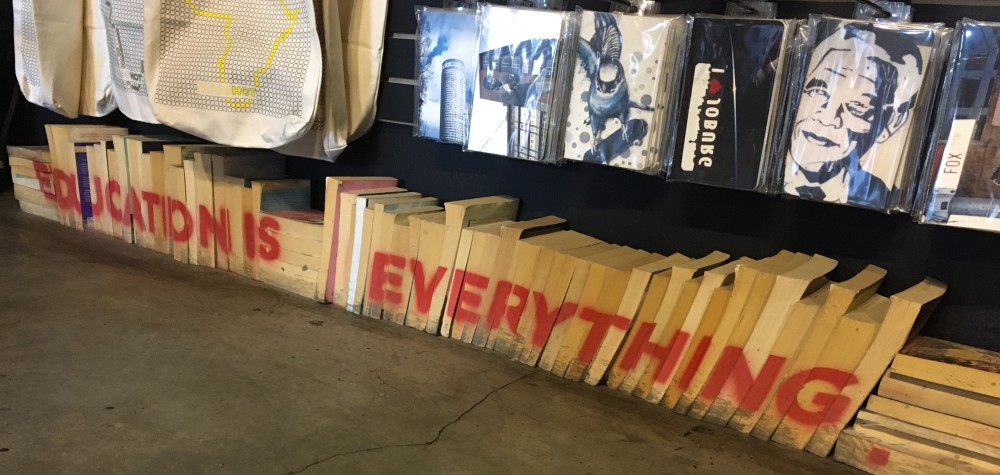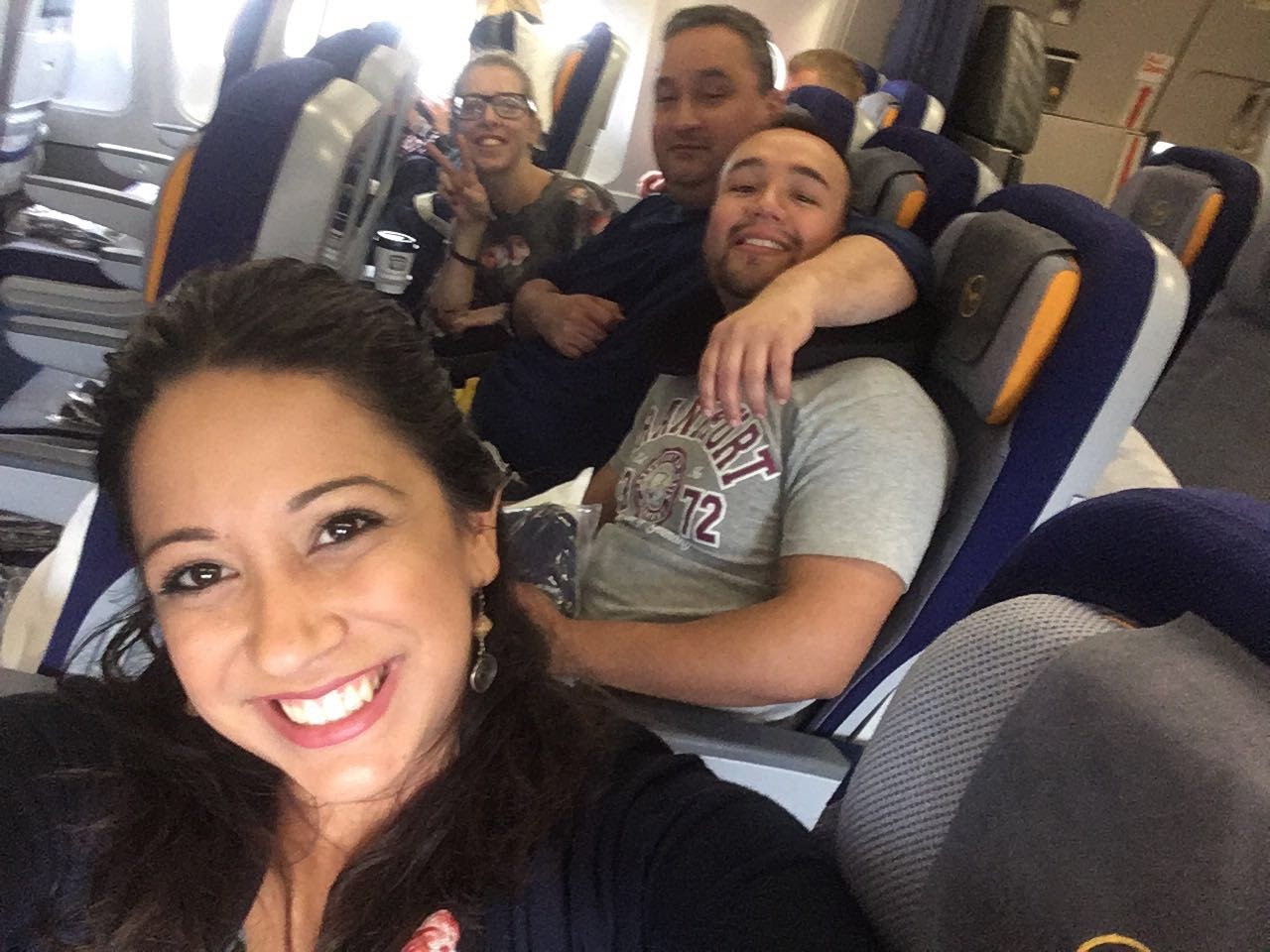Another short plane ride to Cape Town for our next round of conversations and site visits.

Our arrival is met by a stunning sunset over Table Mountain, but our gazing is brief because shortly upon landing we meet colleagues for dinner to deepen our knowledge about the university mergers which took place in the early 2000s.

Drs. Rolf Stumpf (former vice chancellor of NMMU) and Divya Singh (former deputy vice chancellor at Unisa) share experiences and impressions as leaders at the helm of institutions during great periods of change and consolidation.

An Evening with Rolf Stumpf
I had the pleasure of enjoying dinner in the company of Rolf Stumpf for an evening. He spoke to us about his experiences at Nelson Mandela Metropolitan University–and much more! He was gracious and patient with our questions, and shared stories that helped us (well, me, at least) have a better understanding of post-apartheid education in South Africa.
Stumpf briefly talked about his friendship with Jakes Gerwel, who was asked to served as Director-General of the Presidency by Nelson Mandela. After Apartheid, the South African government put in a lot of effort to “transform” higher education, and it sounded like many higher education leaders were able to contribute thoughts and ideas to the efforts. As someone who was working in higher education before and after apartheid, Stumpf told us about the climate on campuses before, during, and after the transition of power. The University of the Western Cape was a particularly liberal campus that allowed students of all races to attend well before the end of apartheid.
The story that Stumpf told that stuck out the most to me was about when he first came to Nelson Mandela Metropolitan University (although, I think it was still Port Elizabeth University at the time), and I will do my best to share the spirit of this story with you. Stumpf, as a white man, was coming to lead a university with a predominantly black student population. It wasn’t long after the end of apartheid, and Stumpf wanted to apologize to the staff and students for the injustice of apartheid. He asked for help to translate “I’m sorry” to Xhosa, the language of many students at the university. (Xhosa is a language in South Africa that uses “clicks” to communicate!) The person he asked did not give a direct translation, but instead taught him a phrase that meant something similar. When he used this phrase as he addressed the students, they responded in unison. From what I understand (and I’ve searched for what this phrase could be, but no luck figuring it out), it was a common kind of call-and-response like “I apologize” and “I forgive you,” but Stumpf explained how deeply meaningful this was.
There’s something to be said about the leader of the university using the language of his students to apologize for the systemic oppression of Apartheid. We talk a lot about meeting our students where they are, and it seemed like Stumpf wanted to do just that when he became leader of the university.
I have thought a lot about this evening since we returned from South Africa. There are still many inequities within the country’s education system. There are still many white leaders of predominantly black institutions, which can further stratify those inequities. Not every leader is like Stumpf, and he even admitted to making his own mistakes during his time at Nelson Mandela Metropolitan University. But things are changing, and Stumpf continues to be involved in the higher education system as these changes are coming about. As we continued to visit other institutions and met with student leaders, it was encouraging to see the next generation of South Africa’s leaders speaking with the eloquence and wisdom of those much older. I can’t wait to see how the system continues to decolonize and transform!
–Sarah Spies, master’s student

